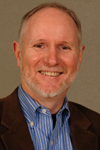Part of the Aging and Disability Business Institute Series—a collaboration of n4a and ASA
Click here to view on Vimeo for free.
While much of the nation is focused on the possible repeal of the Affordable Care Act and/or the enactment of the American Health Care Act, the Medicare Access and CHIP Reauthorization Act of 2015 (MACRA) has the potential to quietly transform the health care system. Old models and methods are being transformed by a new focus on value, accountability, integration, and the social determinants of health. A bipartisan law passed in 2015, MACRA is in its first year of implementation.
On this web seminar, a renowned health care economist and researcher, who serves on the Physician-Focused Payment Model Technical Advisory Committee (PTAC), will discuss the new economic incentives facing providers, with a particular focus on the organizational and sustainability implications for CBOs. Major public policy initiatives and private sector payment models will be discussed, and tips and tools for staying on top of key changes in the field will be shared.
AAAs and other CBOs deliver valuable, proven and desired services to communities all over the country—services that health care providers and payers need to optimize care and lower costs. But they often aren’t fluent in the fluent in the language of payment reform: MACRA, MIPS, APM, PCMH, SIM. If understood fully, these acronyms could translate into real opportunity for your organization. Tune in to this webinar to make sense of and capitalize on the alphabet soup of change rocking the health care world.
Participants in this web seminar will be able to:
- Understand key health care policy and payment reforms that are relevant to AAA’s and other CBO’s operations;
- Explain why addressing the social determinants of health is an important and sought-after capacity for health care providers and payers; and
- Identify tools and strategies for how organizations can stay up-to-date with critical state and federal policy changes, to ensure a proactive response to any opportunities they represent.
Presenters:
 Nora Super leads n4a’s training, technical assistance, research and development efforts. She oversees n4a’s key programs, including planning and capacity development, the Aging and Disability Business Institute, the National Aging and Disability Transportation Center, the Aging Network Volunteer Resource Center, the Eldercare Locator and the Dementia Friendly America Initiative. Nora has worked in a variety of leadership roles in the public and private sectors on health policy and aging issues for more than 20 years.
Nora Super leads n4a’s training, technical assistance, research and development efforts. She oversees n4a’s key programs, including planning and capacity development, the Aging and Disability Business Institute, the National Aging and Disability Transportation Center, the Aging Network Volunteer Resource Center, the Eldercare Locator and the Dementia Friendly America Initiative. Nora has worked in a variety of leadership roles in the public and private sectors on health policy and aging issues for more than 20 years.
 Len Nichols is the Director of the Center for Health Policy Research and Ethics (CHPRE) and a Professor of Health Policy at George Mason University. He has been intimately involved in health reform debates, policy development, and communication with the media and policy makers for 20+ years, after he was Senior Advisor for Health Policy at the Office of Management and Budget (OMB) in the Clinton Administration. In addition to his positions at GMU, Len is on the Board of Directors of the National Committee for Quality Assurance and an advisor to the Patient Centered Primary Care Collaborative. Len is also a member of the Physician-Focused Payment Model Technical Advisory Committee (PTAC), an Innovation Advisor to the Center for Medicare and Medicaid Innovation at CMS, and the Principal Investigator on Patient Centered Medical Home evaluation studies as well as more general ways to use payment and delivery reform to achieve triple aim and health equity goals.
Len Nichols is the Director of the Center for Health Policy Research and Ethics (CHPRE) and a Professor of Health Policy at George Mason University. He has been intimately involved in health reform debates, policy development, and communication with the media and policy makers for 20+ years, after he was Senior Advisor for Health Policy at the Office of Management and Budget (OMB) in the Clinton Administration. In addition to his positions at GMU, Len is on the Board of Directors of the National Committee for Quality Assurance and an advisor to the Patient Centered Primary Care Collaborative. Len is also a member of the Physician-Focused Payment Model Technical Advisory Committee (PTAC), an Innovation Advisor to the Center for Medicare and Medicaid Innovation at CMS, and the Principal Investigator on Patient Centered Medical Home evaluation studies as well as more general ways to use payment and delivery reform to achieve triple aim and health equity goals.
.png)
is funded by:
The Administration for Community Living
The John A. Hartford Foundation
The Gary and Mary West Foundation
The Colorado Health Foundation
The Marin Community Foundation
Partners:
National Association of Area Agencies on Aging
Independent Living Research Utilization/National Center for Aging and Disability
American Society on Aging
Partners in Care Foundation
Elder Services of the Merrimack Valley/Healthy Living Center of Excellence.
Learn more about the The Aging and Disability Business Institute.

